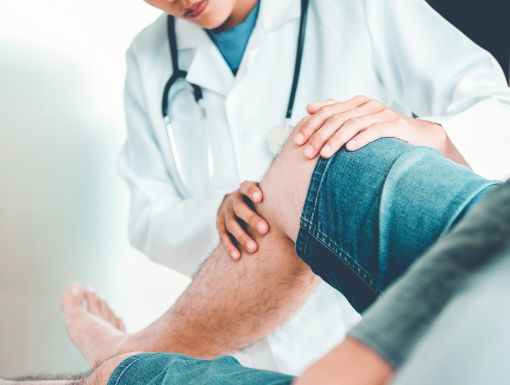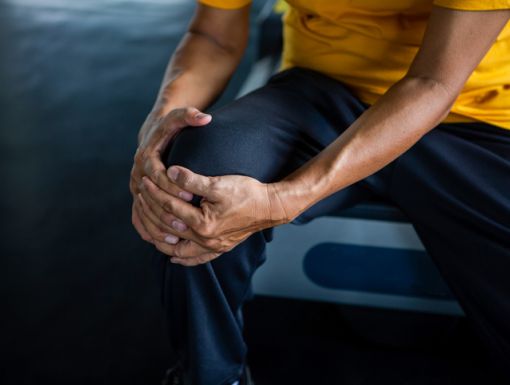
Recovery Time for a Knee Replacement
If you see a knee replacement surgery in your future, you may be wondering what the recovery time may be before you’re back up and running. Each patient is different and recovery time is dependent on several different factors. Factors such as health, stamina, expectations and the difficulty of the surgery may affect recovery time.
If you’ve already spoken to your doctor, you may be aware that patients are encouraged to begin walking the same day you had your surgery. This means you’ll be asked to walk around on your own, with the aid of a walker or other orthopedic device. You will probably go home the same day as the surgery if approved by the medical team but some patients may need to stay one to two days if the medical teams feels it’s necessary. If a patient requires extra attention or does not have home support, they may be transferred from the hospital to a rehabilitation center.
Recovery and rehabilitation are crucial if you have a total knee replacement surgery. It allows you to get back on your feet and return to an active lifestyle. The 12 weeks after surgery are important for recovery and rehabilitation. If you make the commitment to a plan and push yourself to do as much as possible each day, your chances of healing faster are higher.
Recovery Timeline
Weeks one to three: Plan to start rehabilitation right after you wake up from surgery. Within the first 24 hours, your physical therapist will help you stand and walk using devices as necessary. These devices include walkers, crutches and canes. You’ll practice getting in and out of bed, changing the bandage and using the bathroom. Plan to go home the same day, but there may be a small chance you will have to stay one to two days if needed. Leaving the hospital depends heavily on the physical therapy needed and how quickly you progress. Pain, swelling and bruising are normal after surgery, but your team will help you set realistic goals. If your surgeon uses waterproof dressings, you can shower the day after surgery. Otherwise, you may have to wait five to seven days before taking a shower. Avoid soaking for three to four weeks to let the incision fully heal. Your physical therapist may ask you to take longer walks and wean yourself off an assistive device within one to two weeks. Many patients can start driving in two weeks as long as they are not taking any powerful pain medications, with doctor approval.
Weeks four to six: Staying on your exercise and rehabilitation schedule is so important! By now you should notice a dramatic improvement in your knee, including bending and strength. Any swelling and inflammation should have gone down. At this stage, your focus is your knee strength and range of motion using physical therapy. Toward the end of this period, you may find yourself walking farther and doing more everyday tasks like cooking and cleaning. Our goals will include rapidly improving your mobility, range of motion and increasing strength in your knee. Physical therapy exercises will be modified as your knee continues to improve. These exercises may include toe and heel raises, partial knee bends, step-ups and leg balances. These weeks are an important time in your recovery. Your commitment to rehabilitation determines how quickly you can return to a normal lifestyle and how well your knee works in the future.
Week six and beyond: Keep doing exercises and avoid high-impact activities that could damage your knee and the surrounding tissues such as running, basketball or high-intensity cycling. Before starting any new activities, speak with your doctor. You should have much less pain in your knee at this point and should keep improving gradually over time. It may take up to three months to return to most activities and six months to a year before your knee is as strong and resilient as it can be.
At Ochsner Health Center – Kenner, our nationally recognized opioid free surgery program ensures a rapid recovery with the average needing approximately six weeks of physical therapy. Most patients can walk without any assistive devices like a cane in less than two weeks. Many patients can drive in two weeks after surgery so long as they are not taking narcotics. Because we can minimize the pain before, during, and after surgery the recovery time for a knee replacement is far less than it has been in the past.
To learn more about knee replacements or our opioid free surgery program, call our clinic at 504-412-1705.



